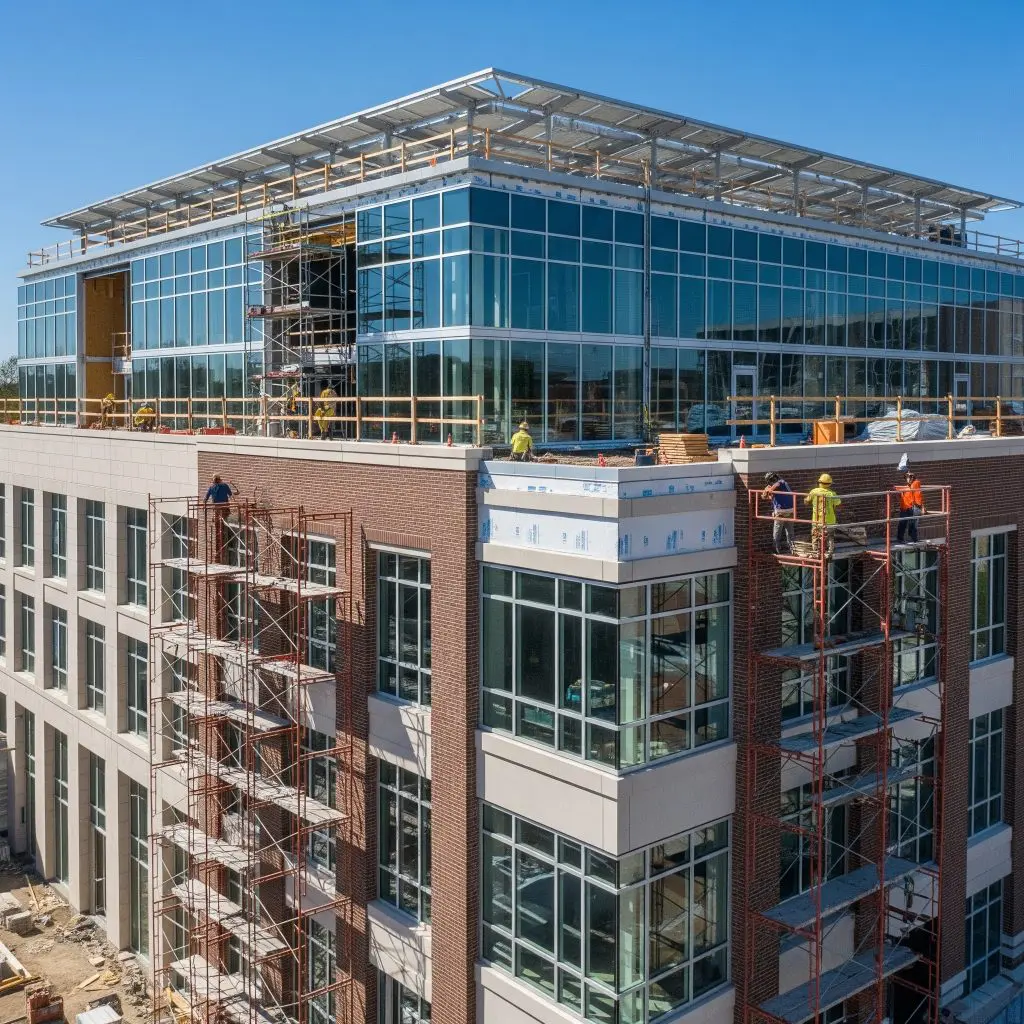The Ultimate Checklist: Documents Required for SBA Loan Process Approval in Colorado
For Colorado real estate investors, the landscape is electric with potential. From the booming tech corridors of Denver and Boulder to the aerospace and defense sectors driving growth in Colorado Springs, the Centennial State offers a dynamic market for portfolio expansion. But to seize these opportunities, you need financing that is as agile and robust as your investment strategy.
In this article:
- The Unique Advantage: Why SBA Loans Are a Game-Changer for Investors
- Colorado Market Insights for Investors (As of June 17, 2025)
- The Definitive Checklist: Documents Required for SBA Loan Process Approval
- Geo-Targeting: Your Colorado Investment Power Play
- Common Questions: Decoding the Document Process
- 1. What is the most common mistake applicants make on their paperwork?
- 2. How recent do my financial documents need to be?
- 3. Do I need an accountant to prepare these documents?
- 4. How does the document list change for an SBA 7(a) vs. a 504 loan?
- 5. Why is the SBA Form 413 (Personal Financial Statement) so important?
- 6. I have multiple business partners. Does everyone need to submit all these documents?
- 7. How can I speed up the document gathering process?
- Your Next Step: From Checklist to Closing
- documents required for sba loan process approval – get a FREE Rate Quote today!
Traditional loans often fall short, demanding prohibitive down payments and offering inflexible terms. This is where the SBA loan program emerges as a strategic powerhouse for investors. But navigating the application requires precision, especially when it comes to documentation.
This guide provides the definitive checklist of documents required for SBA loan process approval. We will walk you through every piece of paper, demystify the process, and show you how partnering with a seasoned expert like GHC Funding can transform a complex checklist into a clear path to your next commercial property.

The Unique Advantage: Why SBA Loans Are a Game-Changer for Investors
Before diving into the paperwork, understand the “why.” SBA loans, particularly the 7(a) and 504 programs, are designed for business growth, which includes acquiring commercial real estate for your own business to operate from. The key benefits over conventional loans include:
- Higher Loan-to-Value (LTV): The SBA 504 program allows for up to 90% financing, meaning your capital injection can be as low as 10%. This preserves your liquidity for renovations, operational costs, or future acquisitions.
- Long-Term, Fixed Rates: The 504 loan provides a long-term, below-market, fixed interest rate on the SBA’s portion, offering incredible stability against market fluctuations.
- Flexible Terms: SBA loans generally offer longer repayment terms than conventional loans, which improves cash flow.
Are You an SBA Real Estate Loan Expert?

Test your in-depth knowledge on using SBA Loans for owner-occupied commercial Real Estate acquisition. These questions delve into the critical details that can impact your business's growth and financial strategy.
Colorado Market Insights for Investors (As of June 17, 2025)
Current Interest Rates:
- SBA 7(a) Loans: These rates are variable, tied to the Prime Rate (currently 8.5%). Lenders add a spread, typically ranging from 2.75% to 4.75%. You can expect total rates between 11.25% and 13.25%.
- SBA 504 Loans: This program features a blended rate. The bank’s portion is negotiated separately. The CDC (SBA) portion for a 25-year debenture currently has a fixed effective rate around 6.40% to 6.65%.
These rates are influenced by your credit score, the property’s Debt Service Coverage Ratio (DSCR), the loan-to-value (LTV), and the type of commercial property you are purchasing.
Key Requirement for Real Estate Investors:
The most critical requirement is owner-occupancy. For an SBA loan to purchase real estate, your operating business must occupy at least 51% of the existing building’s square footage. For new construction, you must occupy 60% at the outset. This makes the program a perfect fit for investors looking to buy a building for their own business while leasing out the remaining space for additional income.
The Definitive Checklist: Documents Required for SBA Loan Process Approval
Being prepared is the single most important factor for a swift and successful approval. An expert lender like GHC Funding will provide a personalized list, but this comprehensive checklist covers what is universally required.
Part 1: The Borrower & Business Foundation
These forms tell the SBA who you are.
- SBA Form 1919 (Borrower Information Form): This form provides the SBA with detailed information about you, your business, and all partners.
- SBA Form 912 (Statement of Personal History): This is a background check form for all principals of the business. Honesty and thoroughness are critical here.
- Business Profile & History: A brief summary of your business, what it does, and its history.
- Business Legal Documents:
- Articles of Incorporation/Organization
- Bylaws or Operating Agreement
- Business License and/or Certificate to Do Business
Part 2: The Financial Picture
This section demonstrates the financial health and viability of your business and its owners.
- SBA Form 413 (Personal Financial Statement): Required for all owners with 20% or more stake in the business. This must be current within the last 90 days.
- Business Financial Statements:
- Current Balance Sheet and Profit & Loss (P&L) Statement (within 90 days).
- Full P&L statements for the last 3 fiscal years.
- Business Tax Returns: Federal tax returns for the past 3 years.
- Personal Tax Returns: Federal tax returns for the past 3 years for all principals.
- Business Debt Schedule: A detailed list of all current business debts.
Part 3: The Real Estate Project Details
This is the information specific to the commercial property you intend to buy.
- Signed Real Estate Purchase Agreement: The fully executed contract with the seller.
- Project Cost Breakdown: A detailed list of all costs associated with the purchase, including renovations, equipment, and soft costs.
- Property Appraisal: A full appraisal of the property conducted by a certified appraiser.
- Environmental Reports: A Phase I (and sometimes Phase II) Environmental Site Assessment.
Part 4: The Strategic Vision
This is where you articulate the “why” behind the purchase.
- Comprehensive Business Plan: Essential for startups and new businesses, but highly recommended for all. It should include an executive summary, market analysis, and management team bios.
- Financial Projections: At least two years of detailed monthly financial projections, with clear, written explanations of your assumptions. This demonstrates to the lender that the project is financially sound.
Navigating this list can feel overwhelming. A dedicated partner like GHC Funding is invaluable here. Their team works directly with you to gather, review, and perfect every document, ensuring your application package is complete and compelling, which dramatically speeds up the SBA loan process approval.
Navigating SBA 7(a) Loans: An Essential Quiz for Small Business Owners

Test your knowledge on the SBA's most popular loan program, designed to fuel business growth and expansion - SBA 7(a) Loans!
Geo-Targeting: Your Colorado Investment Power Play
- Denver (RiNo & Tech Center): The River North Art District (zip 80216) is a hotspot for creative businesses. Consider acquiring a flex-space property here for your design firm or marketing agency, leasing out the extra space to other creatives. Similarly, the Denver Tech Center (zip 80237) offers prime opportunities for purchasing an office condo for your growing consulting or software company.
- Colorado Springs (Northgate & Downtown): With a booming aerospace and defense industry, the Northgate area (zip 80921) is ideal for purchasing an industrial warehouse for a light manufacturing or logistics business. Downtown Colorado Springs is also experiencing a renaissance, offering value in office and retail properties.
- Boulder (Innovation Corridor): The home of CU Boulder (zip 80309) and a thriving tech startup scene. Acquiring a commercial property here for your R&D company or professional services firm allows you to be at the heart of innovation while building equity.
Common Questions: Decoding the Document Process
1. What is the most common mistake applicants make on their paperwork?
Inconsistencies. The numbers on your tax returns, personal financial statements, and business financials must all align. A small discrepancy can cause significant delays.
2. How recent do my financial documents need to be?
Generally, within 90 days of your application date. Lenders need a current snapshot of your financial health.
3. Do I need an accountant to prepare these documents?
While not strictly required, it is highly recommended. A CPA can ensure your financial statements are accurate, professionally prepared, and consistent across all documents.
4. How does the document list change for an SBA 7(a) vs. a 504 loan?
The core documents are very similar as both are SBA programs. However, the 504 process involves two underwriting processes (the bank and the CDC), so documentation must be submitted and approved at both levels.
5. Why is the SBA Form 413 (Personal Financial Statement) so important?
It provides the lender with a complete picture of your personal financial strength and any contingent liabilities. For an SBA loan, the lender is backing you as much as they are backing the business.
6. I have multiple business partners. Does everyone need to submit all these documents?
Typically, anyone with 20% or more ownership in the business will need to submit all personal financial documents, including Form 912 and Form 413.
7. How can I speed up the document gathering process?
Start early! Begin organizing your financial statements and tax returns before you even identify a property. Use a secure digital folder to store everything. Better yet, engage a lender like GHC Funding at the beginning of your search. They can provide you with a checklist upfront, so you’re ready to move the moment you find the right property.
Mastering the SBA 504 Loan: Your Essential Guide Quiz

Test your knowledge on the SBA's most popular loan program, designed to fuel business growth and expansion.
Your Next Step: From Checklist to Closing
The documents required for SBA loan process approval are the bedrock of your application. By understanding the requirements and preparing meticulously, you position yourself for a smooth and successful financing journey.
Don’t let a complex checklist stand between you and your next Colorado real estate investment. Leverage the expertise of a dedicated lending partner who can light the way.
Ready to get organized and pre-qualified? Contact the experts at GHC Funding today. Their team will provide a personalized document checklist and guide you every step of the way, turning your Colorado real estate ambitions into reality.
Valuable External Resources for Colorado Real Estate Investors:
- Colorado Division of Real Estate: https://dora.colorado.gov/division-of-real-estate – The official source for state regulations, licensing requirements, and industry news.
- Colorado Real Estate Investors Association (CREIA): A vital statewide organization providing education, networking, and resources for local investors.
- Denver Metro Commercial Association of REALTORS® (DMCAR): https://dmcar.com/ – An excellent resource for market data, trends, and professional connections in the Denver metro area.
- Colorado Springs Commercial Real Estate Symposium: An annual event providing deep insights into the Southern Colorado commercial market.
- Colorado Housing and Finance Authority (CHFA): https://www.chfainfo.com/ – Offers financing and resources that can sometimes be paired or used as an alternative for specific housing-related investment projects.

